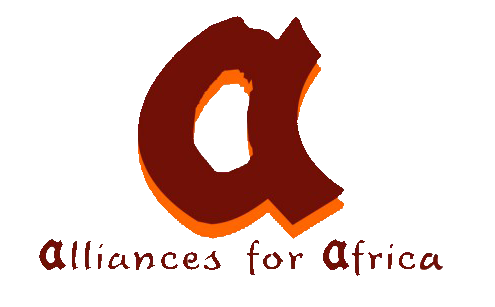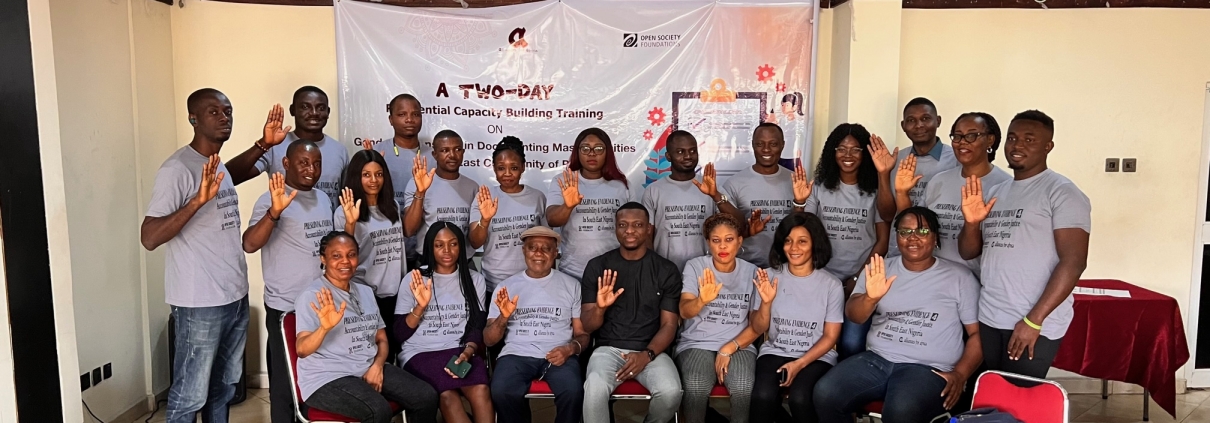AfA Conducts Virtual and Residential Capacity Building Training with South East Community of Practice on Reporting Mass Atrocities
In September 2022, AfA conducted a virtual training for select civil society organizations across South East, Nigeria from Community of Practice (COP) on documenting mass atrocities.
This training was supported by Open Society Foundation’s project (OSF), on “Documentation as an Important Mechanism to Ensuring Accountability of Mass Atrocities in South Eastern, Nigeria”.
The training on “Gender Dimensions in Documenting Mass Atrocities”, with sub topics on;
- How to use technological tools to document atrocities
- Safety and mental health measures to adopt while documenting, was first conducted as a virtual training, subsequently a residential capacity building training was organized to include journalists and COP in Owerri, Imo state.
The objective of the training was to promote citizen’s engagement in the documentation of Mass Atrocities from a gender perspective and also to increase participation knowledge on the use of technological tools in documentation.
The participants were trained by the facilitator, Mr Adebayo Okeowo, Africa Programs Director, Witness, that while reporting atrocities from a gender perspective, placing victims’ testimonies at the core of GBV cases is not only a defeating approach, but is physically dangerous and psychologically harmful to victims. Rather, an evidence- based approach is key as it seeks to remove direct victim’s involvement.
He further stated that, for evidence to be reliable, admissible and to get to standard, efforts have to be made to verify and authenticate evidences which can be – video, audio or photograph.
The exercise exposed participants on leveraging technology to document incidences of atrocities for accountability, best practices in filming for admissibility and safety, psychosocial considerations for frontline service providers and the use of verification tools to authenticate information. It resulted in a better understanding of reporting from a gender perspective, increased understanding of how to use technology to document and report atrocities and a stronger/informed reporting system for GBV cases, as well as coalition-building mechanisms.





Leave a Reply
Want to join the discussion?Feel free to contribute!